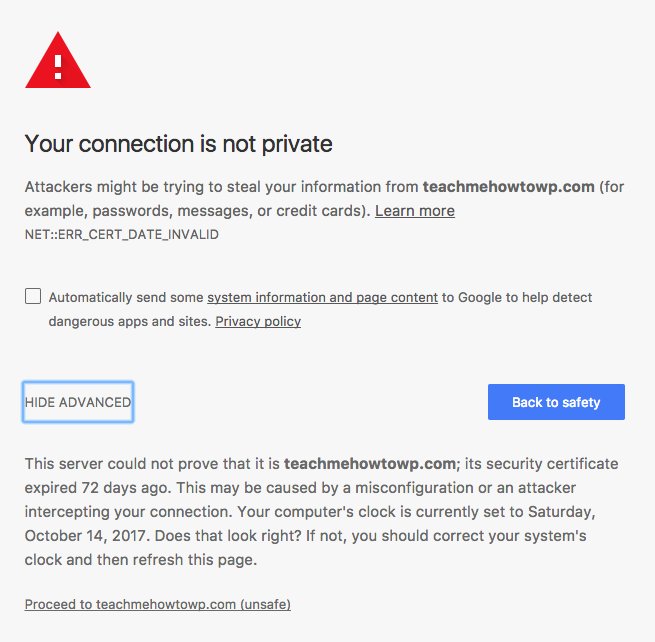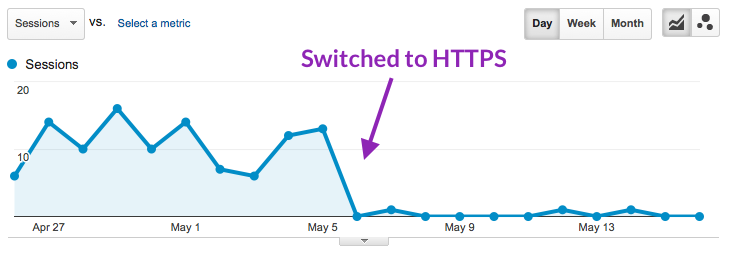
6 Benefits of Switching from HTTP to HTTPS
More than 50 percent of websites in the world have already shifted from HTTP to HTTPS. The trend of making websites more secure and protecting digital information of visitors is on the rise. If your website is still not secure (HTTP), it is time to shift to HTTPS and reap the numerous benefits that come with it.
In this blog post, we take a look at the basic difference between HTTP and HTTPS, what it all means, and highlight the biggest reasons and benefits why you should switch from HTTP to HTTPS as soon as possible.
Explaining HTTP and HTTPS
HTTP or HyperText Transfer Protocol is a set of standards that define how information is to be transmitted on the web. HTTPS or HyperText Transfer Protocol Secure is a more advanced and secure version of HTTP.
While HTTP sends data over port 80, HTTPS uses port 443. By adding an additional layer of security, HTTPS safeguards information on the web. This additional layer of encryption is especially beneficial for websites that collect visitors’ personal information, e.g., email address, credit card information, etc.
Why you need to switch to HTTPS
There are plenty of reasons why you should switch to HTTPS as soon as possible. Here are a few of the big ones:
1. Improved user experience and a higher conversion rate
Modern-day internet browsers — for example, Google Chrome and Mozilla Firefox — warn online users when they visit an unsecured HTTP website.
Here is an example.
The biggest problem with this warning is that it can potentially decrease your site’s conversion rate.
84 percent of online users would abandon purchasing if they knew a website was not secure. This can have a huge negative impact on the conversion rate and the revenue of your website.
2. More accurate PPC data and marketing campaigns
A high cart abandonment rate may skew Google Analytics data. You may presume that your campaign is ineffective. However, the fault would not be in your campaign — but in the security of your website.
A more secure HTTPS website would eliminate that problem, and you will get more accurate data.
In addition, because of an HTTP website and lower conversion rates, you may end up spending a lot of money on PPC campaigns. You can make your PPC campaigns significantly more effective with HTTPS that generally leads to higher conversion rates.
For example, Zamberg increased their conversion rate by 11 percent after switching to HTTPS.
3. Increased credibility and trust
As we discussed above, a warning that your website is unsecured isn’t very reassuring for visitors. This damages your online credibility and reputation.
According to a study, 77 percent of online website visitors are concerned about data privacy. Any implication that your website may not be secure is a major dent to your efforts for increasing recurring visitors and your authority in the niche.
If you want to increase credibility and trust, a secure lock icon can be a major reason to shift from HTTP to HTTPS.
4. A prerequisite for AMP
If you want to set up AMP on your website for mobile optimization, you will need HTTPS.
5. Better security for your website visitors
It is perhaps the single most important reason to shift to HTTPS.
With a better-encrypted site, you can protect your visitors’ data. Data-theft issues should not be taken lightly. Any single instance can ruin your online reputation.
6. More accurate referrer data
It is common knowledge that when an online user lands on your website from another website, that incoming traffic is counted as referrer data in Google Analytics.
However, when an HTTPS website sends traffic to an HTTP website, that traffic is not recorded as referrer traffic. Instead, Google Analytics records it as direct traffic.
This is not an accurate representation of your traffic sources. Incorrect data, such as this, can influence your business decisions.
When other websites that send you traffic switch to HTTPS and your website does not, it will affect your analytics. Here is an example of how an author on Moz.com lost visibility into the traffic source on his personal website when Moz switched to HTTPS.
Conclusion
As you can see, there are plenty of benefits in switching from HTTP to HTTPS. If you are still on HTTP, you should not delay it any further.
Here is a couple of guides to help you switch to HTTPS:










